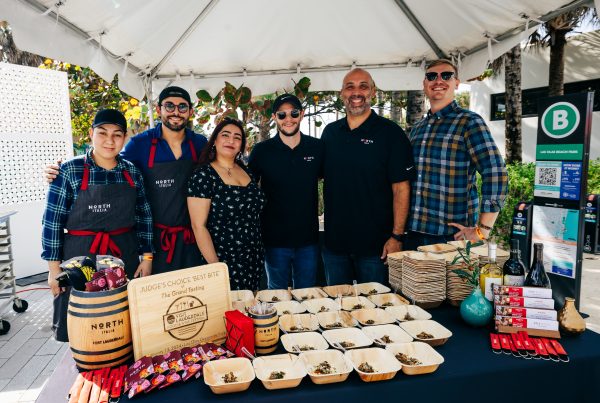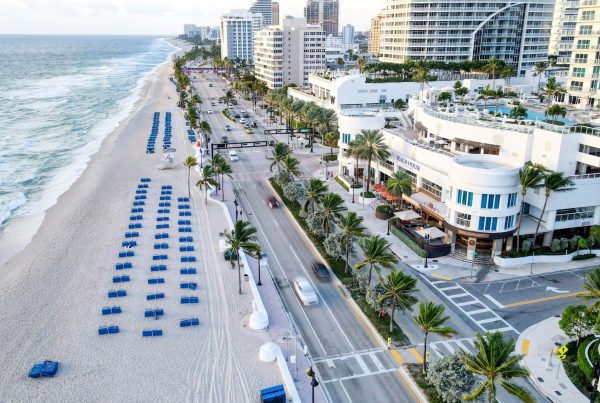Boca Raton is no stranger to innovation. It was at IBM’s campus along Yamato Road that the mega tech company launched its first personal computer. Now, local tech wizards and inventors have found a new home at FAU’s Tech Runway, where entrepreneur Tim Sperry, founder and CEO of Carbon Limit, has set up shop to tackle one of our gravest modern threats: climate change.
Sperry began working out of Tech Runway last July, arriving at the facility with a shipping container full of his company’s tech in tow. “We like to say instead of doing this in a garage, we did it in a shipping container,” says Sperry, whose technology removes carbon dioxide (CO2) from the concrete-making process and leaves a finished product that absorbs and stores CO2. Concrete is estimated to be responsible for up to 8 percent of the world’s CO2 emissions.
“Concrete is the second-most consumed material on the planet, so if you can put something in that, you have a really big opportunity to move that needle,” says Sperry, adding that with his company’s technology, a simple parking lot could remove CO2 from the environment and store it permanently while also improving the performance of the concrete.
Sperry says he’s always been inventing things, from rubber band guns and slingshots as a child in Milwaukee, Wisconsin, to his latest technology that captures and stores C02 in concrete. While he’s always had a knack for invention and a passion for the environment, being a tech entrepreneur wasn’t always the career he had in mind.
“When I went to college, being an entrepreneur just meant you didn’t have a job,” says Sperry, and that he initially wanted to become a corporate lawyer. But the attitude towards entrepreneurship and the tools available for self-starters helped him develop his company and its technology.
Sustainability is a trend in which many major industries are investing. Last year, before the COP26 climate change conference at the U.N., the Global Cement and Concrete Association committed to reducing 25 percent of its carbon footprint by 2030, and go net zero by 2050. Ever since then, Sperry’s phone has been ringing off the hook.
Sperry believes that the pandemic has played a role in expanding awareness of the threats posed by climate change. “People didn’t understand that their air was polluted inside their homes,” says Sperry. “Your home is actually more polluted than the air outside—up to five times and sometimes above and beyond that.”
But the danger of pollution extends far beyond our front door, and the size of our carbon footprint has existential implications.
“There are such bad projections,” says Sperry, and that we are risking sea level rise, extreme weather and global decay if we don’t start removing CO2 from our environment. Many are already feeling the chilling effect of these possibilities, Sperry included. “A lot of people that are coming out of college and in that getting-married stage are considering having kids based on whether the environment will support them later. That’s messed up.”
For the average person, the task of reducing their carbon footprint can seem daunting, but Sperry says there are small things everyone can do to make a difference.
“Be more aware of who you’re buying from,” he says, and warns that “cheap things have a very high cost.”
Sperry adheres to his own principles with his company by ensuring all of his materials are sourced locally, or at least domestically, and by minimizing travel to only a necessary basis. He also hopes that his company can effect change by inspiring other entrepreneurs to dedicate their efforts toward solving our world’s greatest challenges.
“We want to show people that you can make a lot of money doing something that is good for society.”
This story is from the July/August 2022 issue of Boca magazine. For more like this, click here to subscribe to the magazine.







